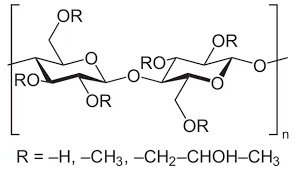
Jul . 11, 2024 15:14 Back to list
Uses of hydroxyethyl cellulose in various industries for thickening and stabilizing formulations
Hydroxyethyl cellulose (HEC) is a versatile polymer that is widely used in various industries for a multitude of applications. It is derived from cellulose, which is a natural polymer found in plant cell walls. HEC is produced by reacting ethylene oxide with cellulose under alkaline conditions, resulting in a water-soluble compound with unique properties.
One of the main uses of hydroxyethyl cellulose is in the cosmetics and personal care industry. It is commonly used as a thickening agent in shampoos, conditioners, lotions, and creams. HEC helps to increase the viscosity of these products, giving them a smooth and creamy texture. It also serves as a binder, helping to stabilize emulsions and prevent separation of ingredients. Additionally, HEC acts as a film-former, creating a protective barrier on the skin and hair to lock in moisture.
In the construction industry, hydroxyethyl cellulose is used in a wide range of applications. It is added to cement-based products such as tile adhesives, grouts, and mortars to improve their workability and adhesion properties. HEC acts as a thickening agent, allowing these materials to be easily applied and spread evenly

what is hydroxyethyl cellulose used for. It also helps to reduce shrinkage and cracking during the curing process, resulting in a more durable and long-lasting finish. In the pharmaceutical industry, HEC is used as a binding agent in tablet formulations. It helps to hold the active ingredients together and improve the disintegration and dissolution of the tablet in the body. HEC is also used in ophthalmic solutions and nasal sprays as a viscosity modifier to enhance the spreadability and retention of the medication. In the food industry, hydroxyethyl cellulose is used as a thickening and stabilizing agent in a variety of products. It is commonly found in salad dressings, sauces, and dairy products to improve their texture and mouthfeel. HEC is also used in gluten-free baking as a substitute for gluten, helping to bind ingredients together and create a light and fluffy texture. Overall, hydroxyethyl cellulose is a versatile polymer with a wide range of applications across various industries. Its unique properties make it a valuable ingredient in cosmetics, construction materials, pharmaceuticals, and food products. Whether it's thickening and stabilizing lotions and creams or improving the workability and adhesion of cement-based products, HEC plays a crucial role in enhancing the performance and quality of countless consumer products.

what is hydroxyethyl cellulose used for. It also helps to reduce shrinkage and cracking during the curing process, resulting in a more durable and long-lasting finish. In the pharmaceutical industry, HEC is used as a binding agent in tablet formulations. It helps to hold the active ingredients together and improve the disintegration and dissolution of the tablet in the body. HEC is also used in ophthalmic solutions and nasal sprays as a viscosity modifier to enhance the spreadability and retention of the medication. In the food industry, hydroxyethyl cellulose is used as a thickening and stabilizing agent in a variety of products. It is commonly found in salad dressings, sauces, and dairy products to improve their texture and mouthfeel. HEC is also used in gluten-free baking as a substitute for gluten, helping to bind ingredients together and create a light and fluffy texture. Overall, hydroxyethyl cellulose is a versatile polymer with a wide range of applications across various industries. Its unique properties make it a valuable ingredient in cosmetics, construction materials, pharmaceuticals, and food products. Whether it's thickening and stabilizing lotions and creams or improving the workability and adhesion of cement-based products, HEC plays a crucial role in enhancing the performance and quality of countless consumer products.
Latest news
-
Versatile Hpmc Uses in Different Industries
NewsJun.19,2025
-
Redispersible Powder's Role in Enhancing Durability of Construction Products
NewsJun.19,2025
-
Hydroxyethyl Cellulose Applications Driving Green Industrial Processes
NewsJun.19,2025
-
Exploring Different Redispersible Polymer Powder
NewsJun.19,2025
-
Choosing the Right Mortar Bonding Agent
NewsJun.19,2025
-
Applications and Significance of China Hpmc in Modern Industries
NewsJun.19,2025
Related PRODUCTS







